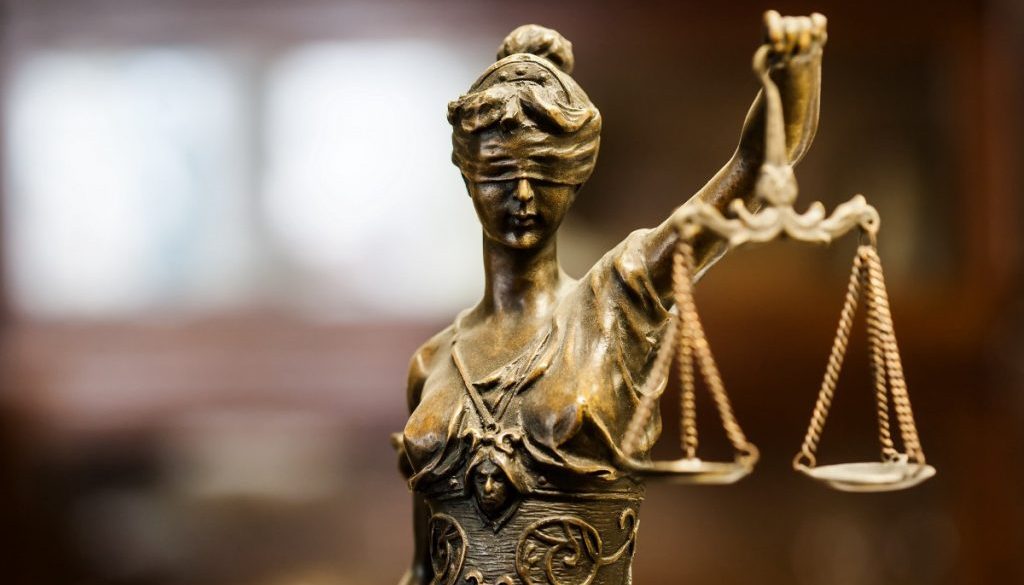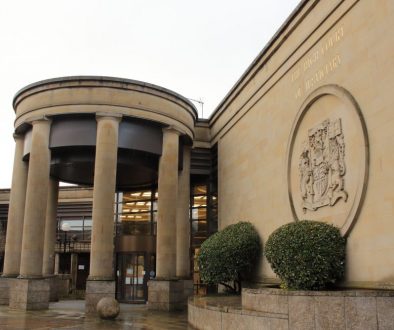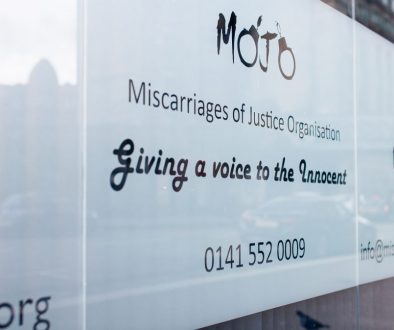How does it feel to be wrongfully accused?
The following article has been contributed by Liam Baxter, one of our senior casework team. It is a powerful and thought-provoking critique of our criminal justice system, written from the perspective of Liam’s personal experience:
“From an early age, it was instilled into me that our criminal justice system should be, (i) recompensing the victims and families who have fallen afoul to criminal behaviour, (ii) negating the risk of criminal offences happening in the future. The overarching theme had always been ‘protecting the innocent’. Later in life, I find myself asking, has the criminal justice system lived up to my expectations? Perhaps, you may ask yourself the same thing?
There was only one career path that sparked any enthusiasm in me during my school years. I was destined to become a lawyer. After all, what could possibly be better than becoming an adherent to this dignified and distinguished system that I had come to know? At 17, my law degree commenced. Immediately, I found myself endowed with the principles that had garnered my interest in the first place. Lecture after lecture, tutorial after tutorial, textbook after textbook, further reinforcement was given to the notion that the truth and justice were inextricably linked, and that the innocent were being protected. Seldom had I felt happier and more intellectually nourished than when I departed from a classroom or reached the end of a textbook. However, this feeling of euphoria would be short-lived. Crucially, the lectures, the tutorials and the textbooks had all neglected to inform me of one thing. That in six months time I would find myself being bundled into the back of a police car, knees driven into my body and tears streaming down my face. My crime, daring to be the last one at the scene of a vicious assault.
Naturally, the police, given the evidence they had, (i) myself being the one to call them in the first place, (ii) myself being the one to care for the victim, (iii) myself being the only one that had not yet scarpered, decided that the appropriate course of action was to have me detained and then later charged. The very foundations of the justice system that I had come to know had been torn down. They were replaced by four dark, cold concrete walls, and an indefinite period of limbo.
Despite all of this, I retained faith in our justice system and a belief that all was not lost. I sought out my course coordinator, in the hope that they would help transform this turmoil into a somewhat sensical situation. After all, as an innocent person, who better to enquire with than a Professor, honorary chair and the scholar with more than twenty years of legal practice behind him. The response that I received haunts me to this day, “Liam, I’m not sure that you should be studying at this institution whilst you have a pending conviction”. “But, what about my presumption of innocence, Professor?” That’s the question that I would ask him today. I didn’t back then though. I took his suggested advice and dropped out. The faculty had turned their back on me. The classmates no longer spoke to me. Why? Because I had chosen to speak openly about my innocence. God forbid the hot air spouted in lectures was forced to make its way back down to earth. God forbid that the buzzwords and phrases such as “truth”, “justice”, “dignity” and “presumption of innocence” scribed into every textbook needed to actually prise themselves from the paper and apply themselves to a real-life scenario.
Now, you may well be starting to suspect a hint of exaggeration. But, you’re wrong. Welcome to the disorientation that reflects the reality of being wrongfully accused. Imagine waking up one morning to the realization that you have a trial in one hours’ time, for a crime that you did not commit. During the trial, a jury will listen to the narrative of the prosecution, that implies your guilt. The defence, in turn, will proclaim your innocence. When all parties have been heard, it will be solely up to the jury to decide your fate. Pre-trial, the defence solicitor has informed you that your case has been prepared as thoroughly as possible, but ultimately there are no guarantees. For, even the best counsel in the world can not assure a ‘not guilty’ verdict. As the trial commences, you find yourself in the dock, looking over to your friends in the public gallery for support, “Sure, we believe you”, the message they had reiterated to you from the offset. The message that provided a glimmer of hope and a minute sense of stability. Then, it dawns on you. Your friends are nowhere to be seen. The rumblings of “there’s no smoke without fire” echo through your head. These rumblings will never leave you. Luckily, your family and those who have stood by you are present. They attempt to convey strength, faith and optimism. But, you see behind this façade. Deep down, they are broken. For, their life, as well as yours, has been put on hold. You all face the prospect of a life that may never return to how it was. Surely then, the learned Judge will cast some light on an otherwise perplexing situation. You look up with cautious optimism, only to receive a discouraging glare in return for your troubles. Ultimately, it boils down to the jury. You glance over to them in the hope that it is a fellow human being that they have in their sights. Inside, you scream, “I’m innocent!”. But, then you realize, it is not a fellow human being that they have in their sights at all. They’re tired, they want someone to pay for these crimes and you’re the prime candidate. One false move and you are done for. Your only option is to sit there, grit your teeth and grind it out, in the hope that those with your fate in their hands are not offended by your appearance, demeanour, the expression on your face, or any one of the infinite number of distinctions that make every human being different in nature. You are there to prove your innocence. The verdict comes in. If you’re lucky (and I mean extremely lucky), you might just hear the words, “not guilty, you are free to leave”. Sadly, these are the words that too many innocent people do not hear.
If indeed, you find yourself in the “lucky” category, will your rightful status as an innocent human being be returned to you? No. The truth is, your innocence no longer belongs to you. The second that you are wrongfully accused of a crime, your innocence is taken from you, along with your humanity. They become locked away in the strongholds of the very institution that is supposed to preserve your ownership of them. As you push through the doors of the courthouse, you find yourself greeted with the murmurings, or perhaps even headlines of “suspect walks free”, implying that you have somehow managed to elude a deserved punishment. Your chosen career path is now nothing but a distant memory, a fallacy. Much like your ‘presumption of innocence’. Returning home will provide you with some respite. However, this period of tranquillity will be short-lived. You’ll notice that you’ve suddenly developed a nervous tick, an incessant habit of curtain twitching, an irrational fear of the postman (who you can no longer bring yourself to answer the door for). You may be overcome by the instinct to hide every time you hear a siren or spot a blue flashing light from your window. The world that you once knew has completely deserted you. Yes, all of this is if you are one of the “lucky” ones! Can you imagine being one of those innocent people to hear the words “guilty” at the end of it all? I can’t. But, I’m damn sure that we owe it to them to try. It is our justice system that has done this to them, after all, and is continuing to do so this very minute. An extremely brief investigation will return numerous cases of wrongful convictions. Bear in mind, these are only the cases of significant public interest and/or where the victims have had tireless campaigners working on their behalf. These are only the cases where victims have miraculously not given up on the prospect of beating the colossal institution that puts every last resource into maintaining convictions, just so that it can save face. The reality is that the truth, innocence and justice do not matter.
Sadly, we live in a society where it is virtually impossible to be successful in any large-scale institution without possessing an astute ability to dehumanise people. Our criminal justice system is no exception. Those involved with it must be able to selectively disengage from their moral standards and responsibilities. Otherwise, how would they sleep at night? This is a talent that we all possess. We can be extremely compassionate in some aspects of our lives while being simultaneously wicked, cruel and neglectful in others. On paper, we have the workings of a perfectly good legal system. But, most crimes are not committed on paper, trials are not carried out on paper, life is not lived on paper. Without humanity, there can never be a functioning justice system. Without humanity, our justice system comprises of little more than misbeliefs and empty platitudes. So, I ask again, are we happy with our justice system? Are we happy to continue using our own talents to disengage from our responsibilities to miscarriage of justice victims? Personally, I think it is time that we used our talents to engage with, rather than disengage from our justice system. It is time that we put some humanity back into it. Or, does it not affect you? Will it never affect your loved ones? I thought the same once. But, trust me, as an unassuming individual who has been put on trial twice for crimes that I did not commit, it can happen to you. And, with a justice system that is currently on its knees due to Government cuts, and is not structured to treat you as a human being, do you really fancy your chances?
Liam’s article was originally published HERE.



